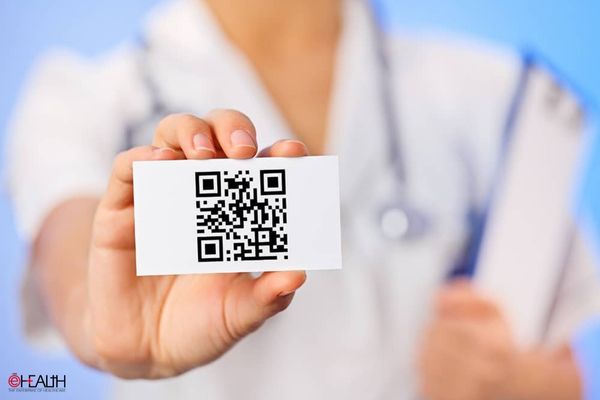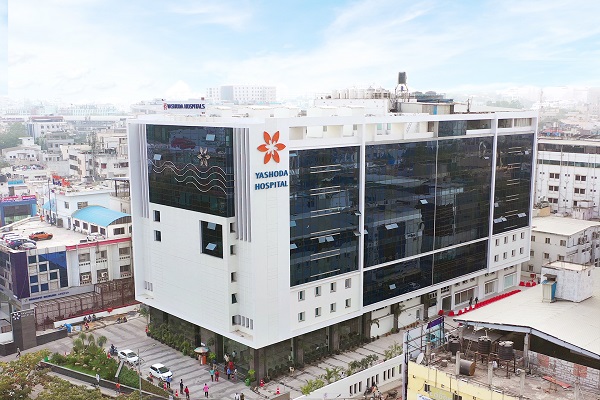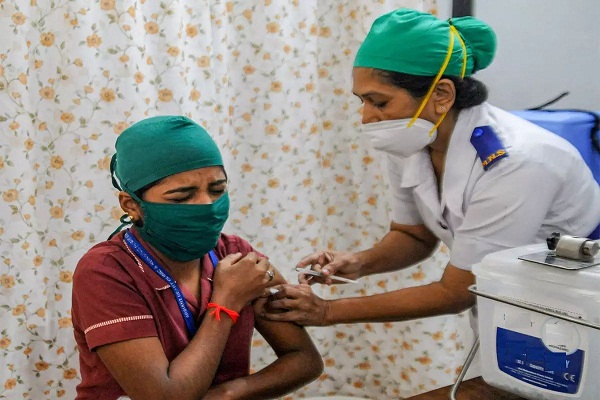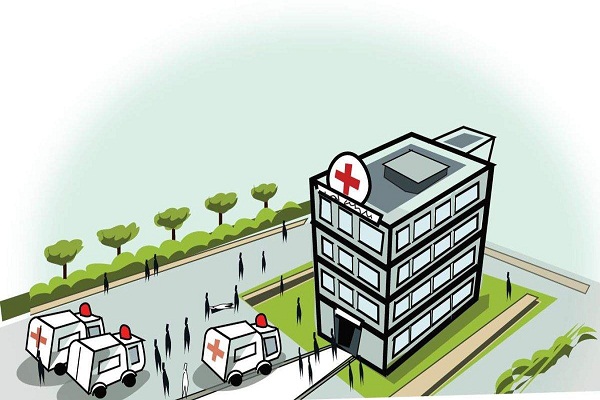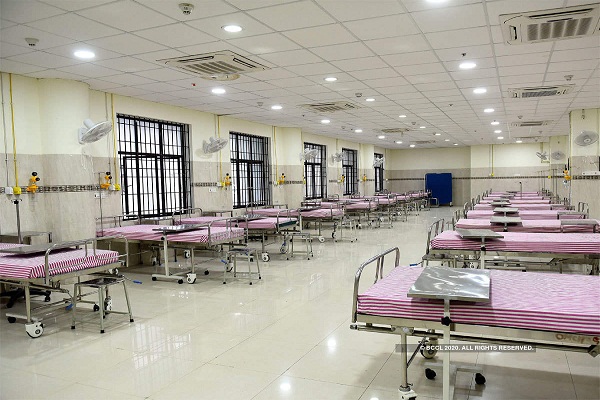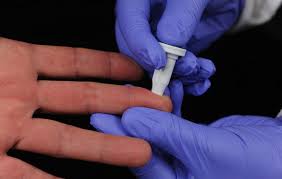

Discovering a new way to deal with Ebola, companies and various academic researchers are now slogging to get faster and easier tests for ascertaining, if someone had the Ebola disease ever. Such examination might require only a few drops of blood sample rather than a test tube of it, and provide the answer on the spot, with no need of sending the rest samples for examination.
The tests could be essential in West Africa, where it can take days for a sample to travel to one of the relatively few testing laboratories, leaving those suspected of having the disease in dangerous limbo.
Rapid tests might also be used to screen travelers at airports, providing a more definitive answer than taking their temperatures.

Theres a great deal of interest in a technology that can screen large numbers of people from a finger prick in only a few minutes, said Cary Gunn, chief utive of Genalyte, a company in San Diego that says its approach can do just that. You can imagine testing an entire planeload of passengers and screening through them cost-effectively.
How did the timing of the large-scale intervention in the Ebola outbreak affect the number of reported cases today?
An explosion of cases in early summer seems to stem from a traditional healers funeral at which 14 women were infected, according to scientists.
Only about 15 ambulance teams are available to aid Monrovia, a city of nearly 1.5 million people, where hundreds of new Ebola cases are reported each week.
The World Health Organization has issued guidance in West Africa on collecting convalescent blood or plasma for transfusion, but there are obstacles.
The World Health Organization is encouraging development of rapid tests, as is the federal government. The Food and Drug Administration is giving emergency authorization for use of qualified Ebola tests. On Oct. 25, it gave such a clearance for a one-hour test developed by BioFire Defense, although that test requires more than a few drops of blood and is typically sent to a laboratory. It would have taken years to get this product approved through the traditional process, said Kirk Ririe, chief utive of the company, which is based Salt Lake City and owned by the French diagnostics firm BioMérieux.
Companies are hoping to get their tests into the field in Africa in the next few months, but it is not clear how many will be in time to make a difference in the outbreak. And some health specialists caution that while one company after another is announcing an Ebola test, there is little information about their accuracy.
Its a wild, wild West a little bit in development, said Dr. Mark Perkins, chief scientific officer of FIND, or the Foundation for Innovative New Diagnostics, a nonprofit organization working with the World Health Organization to assess Ebola tests. Eight Ebola products on the market with no one knowing how they work is not helpful.
The need for better testing is most acute in West Africa, which has too few testing labs. Dr. Perkins said testing capacity needed to be more than doubled to about 12,000 tests a week in Guinea, Liberia and Sierra Leone and labs placed closer to where people with symptoms are coming for care.
Samples now sometimes have to be transported for hours or days over rutted roads to a laboratory. People suspected of having Ebola must wait in holding rooms until the results come back. If they do not have Ebola when they enter the room, they might have it by the time they leave.
People are waiting four to five days, for test results, said Dr. J. Daniel Kelly, who is working in Sierra Leone for the aid group Wellbody Alliance. They are watching people around them die. Horrible experience. You are locked in there at night.
Continue reading the main story
Even in the United States, delays can occur, with samples being sent to the Centers for Disease Control and Prevention in Atlanta or some state public health laboratories.
It took about two days for the confirmation that Thomas Eric Duncan was infected after his second visit to a Dallas hospital.
With flu season coming, hospitals might benefit from having a quick way to rule out Ebola for certain patients as their emergency rooms fill with people with fevers and other symptoms that overlap with those of Ebola.
The standard testing technique for Ebola is known as reverse transcription polymerase chain reaction, or RT-PCR. It amplifies the genetic material of the virus, allowing even tiny quantities to be detected. It is very accurate if done correctly.
But PCR generally requires a tube of blood and is performed by trained personnel on a sophisticated machine. A test can take two to six hours or more and cost about $100.
More than 300 hospitals already have one of BioFires $39,000 machines, which they have been using to test for other diseases. Now they can test for Ebola on site, though positive findings are supposed to be confirmed by the C.D.C.
A BioFire machine is in a special isolation ward used to treat Ebola patients at Emory University Hospital, and an instrument was delivered to Bellevue Hospital Center in New York after Dr. Craig Spencer was admitted for treatment.
Still, some say that in Africa, reducing PCR testing time by a couple of hours is not that important.
The bottleneck is not the speed of the technology, but the transport time and lack of testing capacity, said Rob Powell, director of research and development at Primerdesign, a British company. It is developing a PCR test using materials that do not require refrigeration, so that it can get to more far-flung places, he said.
What would be most valuable in Africa, some health specialists say, is a test that takes a few minutes, as the person awaits results, and costs a few dollars at most.
Various companies and organizations are working to develop such tests, including Frances Atomic Energy Commission, the Institut Pasteur, the German company Senova and the American companies Corgenix, NanoBioSym, Nanomix and others.
We have been working since March, shoulders against the wheel, to be ready to roll these out in quantities that would make a difference in the outbreak, said Dr. Robert Garry, a professor of microbiology at the Tulane University School of Medicine.
The test he is working on, which is being manufactured by Corgenix, is similar to a home pregnancy test. It uses antibodies that bind to one of the proteins of the Ebola virus. A finger prick blood sample is put on a test strip, which is then put into a tube containing a solution. After about 15 minutes, a line appears if the virus is present.
Because they do not amplify the viral genes as PCR does, such rapid tests are not expected to be as sensitive in detecting the virus. Using inaccurate tests would be a perilous endeavor, said Brian Bird, a veterinary medical officer at the CDC.
Continue reading the main story Continue reading the main story
Continue reading the main story
If a test falsely says someone has Ebola, that person would be put into an Ebola treatment center, where he or she might catch the disease. And missing an infection would allow a person to return to the community and possibly infect others.
Airport screening is also tricky. A fast test would presumably be more accurate, albeit slower, than thermometers, because body temperature can be raised for many reasons or suppressed by fever-relieving medicines.
But the main problem with screening is not that thermometers are inaccurate. Rather it is that people typically do not develop fever or other symptoms until six days or more after being infected. So they can pass through airport screening, as Mr. Duncan and Dr. Spencer did.
Yet health specialists say the rapid tests probably will not reliably detect the virus until the person has symptoms, because viral levels in the blood will be too low. Even the PCR test has trouble detecting infection much before symptoms appear.
Still, Dr. Garry of Tulane said even detecting the virus in people with mild symptoms might help. He said the test might have picked up the infection in Amber Vinson, the Dallas nurse who flew from Cleveland back to Dallas with temperature and was later examined to have been suffering from Ebola.
Be a part of Elets Collaborative Initiatives. Join Us for Upcoming Events and explore business opportunities. Like us on Facebook , connect with us on LinkedIn and follow us on Twitter , Instagram.





